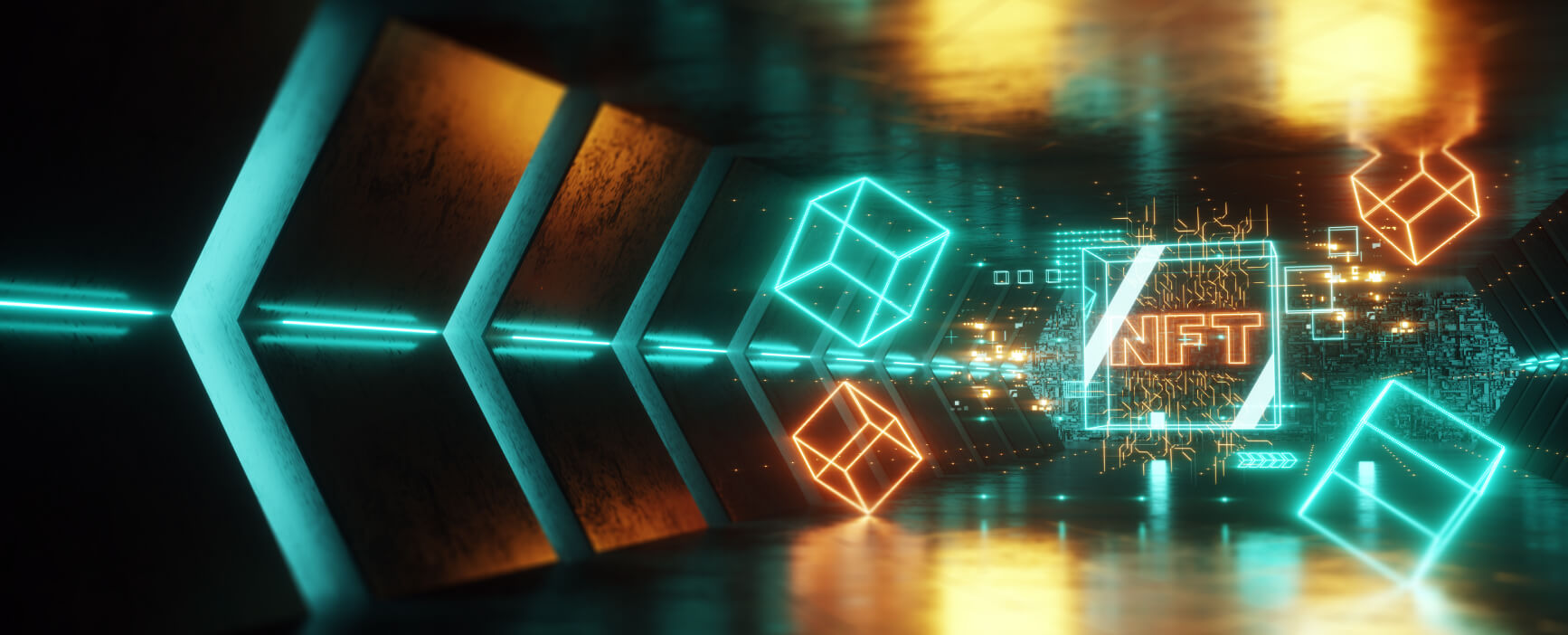
Introduction
Blockchain & Web3 Services Trusted By Leaders
- Develop innovative solutions using our state-of-the-art blockchain expertise.
- Achieve accelerated growth with robust & scalable Web3 consulting.
- Unlock 360-degree security with our top-rated blockchain development.
How are NFT Games Transforming the Gaming Industry?
Non-fungible tokens (NFTs) are shaking up the gaming industry. They are gaining popularity because of their unique benefits. NFTs have given virtual assets a new lease of life. With their Blockchain-enabled attributes and exceptional use cases, they are quickly revolutionising the games industry. If you’re still unsure about blockchain gaming, let me explain further.1. Blockchain:
-
Blockchain Gaming:
A blockchain game (NFT games or crypto games) includes elements that use blockchain technology. For example, players can buy, sell, or trade NFTs or cryptocurrency with other players, and the game publisher can take a fee from each transaction as a form of monetisation. Most players choose to join blockchain gaming to earn something that has value in real life, and therefore, we can take them as “play-to-earn (P2E)” games.
2. NFTs:
The non-fungible token is a cryptographic asset built on the Blockchain with a unique ID and metadata. There are three main features of NFTs: uniqueness, non-fungibility, and indivisibility. The tokens can be used in blockchain and crypto games to own digital possessions like gaming characters, memes, videos, and more.-
The Role of NFTs in gaming:
We believe that non-fungible tokens (NFTs) will be the next significant innovation in the gaming industry. NFT games are based on a play-to-earn model. Therefore, we often call them Game-Fi, a combination of “Gaming” and “Finance.”
-
Game-Fi games offer players two attractive propositions:
- Play the game and earn money
- Use NFTs to own digital assets in the virtual world, such as gaming characters, memes, videos, or other digital assets.
Blockchain technology will disrupt the gaming industry in three ways:

Advantages of NFTs in the world of future gaming:
Blockchain-based gaming apps are more comfortable for gamers because hackers cannot change information in the blockchain network due to its immutable nature. This immediacy and transparency make the Blockchain perfect for games that use non-fungible tokens (NFTs) and want to allow users to trade and exchange digital assets. Let’s look at some of the differences that NFTs have made in the games industry:1. Ownership:
An NFT is an in-game asset, and it is exchangeable for real-world cash. As a result, developers can empower players to earn money by trading their rare digital belongings with other gamers. The digital gaming industry is currently at the forefront of blockchain implementation, allowing gamers to enjoy a safer experience while making in-game assets worth real money. The ability to move purchases between games and trade them with other gamers makes NFTs ideal for any game incorporating blockchain technology like non-fungible assets (NFA) or Ethereum ERC-721 tokens.
2. Integrated profiles:
Each profile gets verified on a blockchain network. The verification process prevents duplication or fraudulent records on the gaming platform. Blockchain allows users to have a single profile across multiple platforms. A single profile system enables users to purchase in-game items and access different games with a better user experience. After all, many games today suffer from hacking and bots because they don’t have adequate security measures. You might lose all your hard-earned in-game rewards if your account got hacked in an online game. These vulnerabilities are why blockchain technology has become the ideal solution for the future of online gaming platforms.
3. Scarcity:
Gamers and collectors value rarity and authenticity, and the scarcity of NFTs is provable through the immutable records embedded in an NFT’s underlying blockchain network. This distributed public ledger validates each piece of art’s number, uniqueness, and ownership history. In addition, NFTs are created on public access networks because a forgery is less likely to occur on open networks. An NFT gaming ecosystem supports billions of digital assets built on blockchain technology.
4. Security:
Blockchain reduces the inevitable problems that prevent glitches in games with cryptocurrency integration, such as transaction fee issues. As for the security of user data, the benefit of using Blockchain goes far beyond its strength in decentralization and effective data encryption measures. The Blockchain’s smart contract system also allows easy implementation of various anti-cheating mechanisms. These security measures will provide players with a secure environment, almost eliminating the threat of hacking or tampering within the game.
5. Interoperability:
Developers built traditional games on centralized servers, but the future of gaming is decentralized. It enables significant opportunities for the creation of more immersive and interactive experiences. Decentralized games are exponentially more innovative than their centralized counterparts. They exist within a network of games that communicate with one another and draw inspiration from multiple sources. If two games can support the same in-game assets, there’s no telling how far a player’s or digital avatar can spread across game communities.
6. Immutability:
Being scammed by a traditional online gaming platform is the worst experience. Gamers lose everything from in-game assets to rewards when a game shuts down. By contrast, in blockchain games, ecosystem NFTs exist independently of a specific gaming platform live on the Blockchain. Furthermore, a permanent record of Blockchain prevents duplicating game assets. Each NFT is generated upon issuance. Finally, collectibles represent an entirely new category of digital assets with advanced functionalities, such as non-fungibility, scarcity, and even the ability to interact with each other in a meaningful way. The immutability feature of blockchain is therefore a huge benefit to in-game asset security that doesn’t exist within traditional online gameplay.